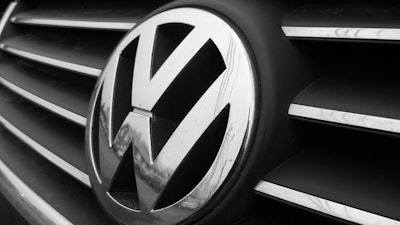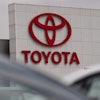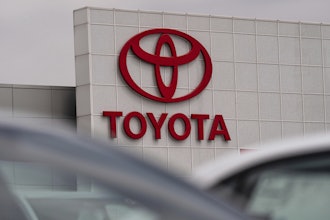
DETROIT (AP) — Federal and state officials said Monday they have approved a fix for 38,000 Volkswagen, Audi and Porsche sport utility vehicles with diesel engines that were cheating on emissions tests.
The approval brings German automaker Volkswagen AG closer to resolving a costly and embarrassing scandal that began two years ago, when the company admitted that more than 550,000 vehicles in the U.S. — and 11 million worldwide — were designed to cheat on emissions tests. The vehicles have software that turns on emissions controls during testing but turns them off in everyday driving.
The U.S. Environmental Protection Agency and the California Air Resources Board had to approve the fix under a $1.2 billion settlement approved by a federal judge this spring. The most recent fix applies to 3-liter diesels in 2013-2016 models of the Volkswagen Touareg and Porsche Cayenne and the 2015 Audi Q7.
Volkswagen will contact owners about the fix. Dealers will update the software in all of the vehicles and modify hardware in some of them for free. Owners also will receive compensation of between $7,039 and $16,114. Once complete, Volkswagen will have repaired or bought back most of the U.S. diesels involved in the scandal.
Here what you need to know about the Volkswagen fix:
- The 3-liter diesels are among the last of the vehicles Volkswagen must repair in the U.S.
- Last year, the company agreed to a nearly $15 billion settlement that required it to buy back or fix 475,000 2-liter diesel cars in the U.S.
- Volkswagen must still get approval for a 3-liter diesel fix in some versions of the Audi A6, A7 and A8 sedans and the Q5 SUV.
- It has already paid out more than $23 billion in U.S. fines and settlement costs and last month, it announced a $3 billion charge for buying back and retrofitting the 2-liter diesels.
- Volkswagen could have been on the hook for as much as $4 billion in vehicle buyback costs if the most recent fix hadn't been approved by the EPA and California.
- Not all of the 3-liter diesels Volkswagen sold in the U.S. can be fixed. The automaker was required to buy back around 20,000 older vehicles with 3-liter diesels from the 2009-2012 model years because they couldn't be repaired to meet pollution standards. Those owners also received compensation ranging from $7,755 to $13,880.
- The scandal has caused Volkswagen to rethink its diesel strategy and invest more in electric vehicles. It now plans to introduce more than 30 electric-powered vehicles by 2025 and sell 2 to 3 million of them per year. It's also spending $2 billion to build electric charging stations in the U.S. as part of its settlements with the U.S. and California.






















